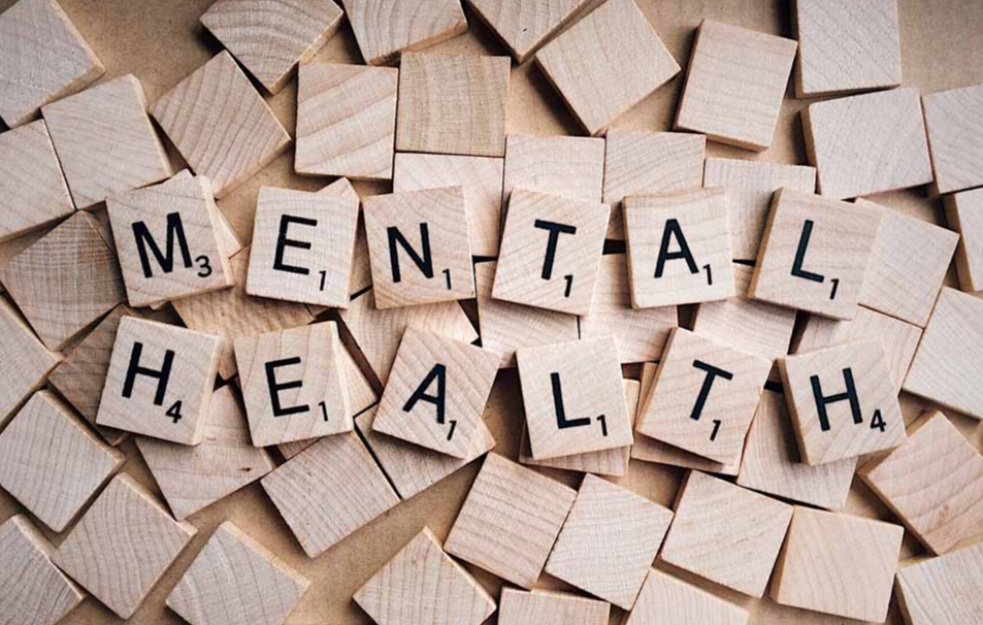Mental Health
Mental health is an incredibly important and often overlooked factor in our overall wellbeing. Unfortunately, many of us struggle to understand what mental health means and how to take care of it.
Navigating through the journey of wellness can be challenging and overwhelming, but with the right guidance and support, it’s possible to find balance and peace.
Understanding Mental Health: Definition and Symptoms
Mental health is a complex concept encompassing all aspects of mental, emotional, and social wellbeing. It’s important to understand that mental health can affect people in different ways, and not everyone will experience the same signs or symptoms. Common signs of mental health issues include persistent feelings of sadness and hopelessness, difficulty sleeping or concentrating, changes in appetite or weight, extreme fatigue, and an inability to enjoy activities that used to bring joy. Other types of mental health disorders include depression, anxiety disorders, bipolar disorder, eating disorders, post-traumatic stress disorder (PTSD), obsessive-compulsive disorder (OCD), and schizophrenia.
It is essential to seek professional help if you are experiencing any of these signs or symptoms as there are many treatment options available. Mental health professionals such as psychiatrists and psychologists can provide diagnosis and treatment for mental health issues as well as support for recovery. Unfortunately there remains a stigma surrounding mental illness which can make it difficult for people to seek the help they need. To combat this stigma it is important to create an open environment where individuals feel comfortable discussing their struggles without fear of judgement. This can be done by encouraging open dialogue about mental health topics such as reducing the usage of negative language related to mental illness and creating more awareness through campaigns promoting understanding and acceptance.
Прикажи ову објаву у апликацији Instagram
Finding Professional Help: Options and Benefits
Finding professional help for mental health can be a daunting task, especially when navigating through the different options and understanding what kind of help is best suited to your needs. It’s important to take the time to research professionals and their services in order to make sure you find the right fit for your individual needs.
When seeking professional help, it’s important to understand the advantages associated with seeking help. Those who are struggling with mental health issues can benefit greatly from therapy as it provides an outlet to discuss personal struggles with a neutral third party, while providing an opportunity to learn new coping skills and strategies. Additionally, counseling can provide insight into underlying issues that may be contributing to mental health problems and can provide structure and support in making positive changes.
Knowing when it’s time to ask for help is key in finding appropriate professional resources. If your mental health is impacting your day-to-day functioning or is causing disruption in relationships or work life, then it may be time to seek out professional assistance. It’s also important to consider what type of help you should seek out; if you’re looking for short-term solutions such as stress management techniques or if more intensive treatment such as Cognitive Behavioral Therapy (CBT) would be better suited for your needs.
When trying to find a therapist or other type of mental health professional in your area, there are several resources available such as online directories and insurance plans that specialize in behavioral healthcare services. Additionally, many community organizations offer low-cost or free counseling services so researching local resources can be beneficial if cost is an issue. Many insurance plans also cover certain types of therapy sessions so it’s worth researching what coverage options are available before deciding on a particular service provider.
By taking some time upfront and doing thorough research on different professionals and services available, readers will have all the information they need when deciding on which professional might be best suited for their individual needs. This ensures that readers have all the tools necessary for navigating through this journey towards wellness successfully.
Building a Support System: Friends and Family
Building a strong support system is an essential part of managing mental health wellness. Friends and family can be excellent sources of comfort, providing understanding, care, and love during trying times. Here are some tips to help cultivate positive relationships with your most supportive people and develop a stable base for recovery:
Its important to open up about your feelings to those you are closest to. Expressing how you feel can be daunting, but it is necessary for building trust in the support system. If you dont have someone near who you can talk to, consider speaking with a therapist or joining an online community that will provide a safe space for sharing stories without critique.
Foster meaningful conversations about mental health with friends and family who may not understand what you’re going through fully. Aiming for understanding rather than advice or solutions will create more compassionate communication between everyone involved. The more open the dialogue becomes between everybody in the discussion, the better result it will bring overall.
Work together on creating a plan which includes specific tactics for dealing with stress or anxiety when needed as well as methods to cope with difficult emotions such as sadness or anger when they arise. Having this plan in place provides relief knowing that somebody will be there if assistance is required during hard times.
Take time out of your day doing activities that make you happy- whether it’s taking a walk in nature or playing board games at home- engaging in activities with those closest to us aids in forming strong bonds and helps strengthen our resilience when facing tough times ahead.. Connecting deeply with others can also make us feel less isolated throughout our journey of mental health recovery
If friends or family members are unavailable, tap into other networks like local organizations or online communities devoted to supporting those struggling mentally. With so many resources available today, no one has to battle their struggles alone; take advantage of these resources if needed and never forget that hope always exists!
Self Care Strategies: Self-Therapy and Coping Mechanisms
Caring for oneself is a crucial element of addressing psychological issues and journeying to wellness. Acquiring the skills necessary for self-care can help readers recognize and manage their emotions, leading to better mental health. Mindfulness is one way to do this; it involves focusing on the current moment without judgment or distraction through activities like deep breathing exercises or progressive muscle relaxation. These practices provide a calming sensation when done regularly.
In addition, having healthy methods of expressing emotions is important in managing mental wellbeing. Writing and being creative are two options that allow people to release feelings without becoming overwhelmed by them. Exercise outdoors also offers an escape from stress and serves as a means of clearing the mind. Pursuing leisurely activities that bring pleasure, such as playing music or reading books, provides readers with an opportunity to relax and take pleasure in lifes moments.
Maintaining balance additionally involves establishing a daily routine that works best for you. This could include preparing meals ahead of time, setting reminders for tasks that need completing, chunking large projects into smaller segments, allocating time each day solely dedicated to yourself, or engaging in physical activity if possible—all of which will contribute towards keeping readers feeling energized and positive throughout their day.
Although self-care strategies are useful when tackling mental health concerns on your own, it’s still essential not to forget about seeking professional help if needed too—there’s no disgrace in asking for support when facing tough situations; communicating openly with a therapist often leads to healing and growth that wouldn’t be possible otherwise.
Resources For Recovery: Mental Health Apps and Support Groups
As technology advances, mental health apps and support groups are becoming increasingly popular resources for individuals to use as they navigate their journey of wellness. Mental health apps are designed to track symptoms, assist in self-care, provide education and guidance, connect with peers and professionals, and create personal plans of action. While these apps may be helpful in some scenarios, it is important to do research on the app before downloading it to ensure that it is the right fit for individual needs.
When looking for a mental health app, consider factors such as cost (free or paid), privacy policy (how secure your information will be), user reviews (what other people have said about the app), features offered (does it offer tracking/journaling?), and overall purpose (what does this app do?). It is also worth noting that many apps provide a free trial period or demo version so that users can get a feel for how the app works before committing fully.
In addition to mental health apps, support groups can also be beneficial resources for individuals seeking recovery from mental illness. Support groups provide an opportunity to connect with others experiencing similar challenges who understand what you’re going through. Research online directories or local organizations in your area to find a group that meets your specific needs. If you’re not sure where to start looking, ask your therapist or doctor for recommendations. When attending meetings virtually or in-person make sure you feel safe and comfortable by understanding the guidelines beforehand so you know what to expect during the meeting.
Before utilizing either of these resources – apps or support groups – make sure you have a plan of action in mind. This could include setting goals around self-care activities such as journaling, tracking symptoms daily, practicing mindfulness exercises regularly etc., depending on individual needs and preferences. Having a plan allows individuals to stay focused on their goals throughout their journey of recovery while providing an outlet if feeling overwhelmed by emotions or stressors along the way. With access to helpful resources like mental health apps and support groups available at our fingertips today more than ever before - there has never been an easier way for individuals to take control of their own mental health journeys!

















